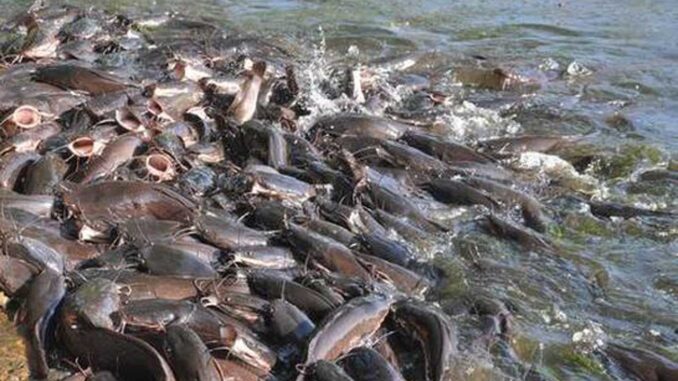
NIGERIA – The Catfish Farmers Association of Nigeria (CAFAN) has called for the diligent execution of the 2024 budget to ensure the robust development of the aquaculture sector.
CAFAN’s national president, Sunday Onoja, emphasized the need for relevant agencies and departments responsible for budget implementation to fulfil their roles to achieve the goals outlined in the budget.
In an interview with the News Agency of Nigeria (NAN), Onoja expressed optimism about the sector’s growth in 2024 and stressed the importance of effective budget implementation.
He urged the authorities to work collaboratively with stakeholders in the aquaculture sector to maximize productivity.
“We want to believe that those saddled with the responsibility for implementing the budget in the aquaculture sector will do it adequately,” Onoja said.
He pointed out that the collaboration between government agencies, departments, and industry stakeholders was crucial for realizing the sector’s potential.
“We are the stakeholders, and since being in office hardly have we seen government agencies work with us for the implementation of the budget,” Onoja added emphasizing the role of fisheries and aquaculture stakeholders.
“This year, fisheries and aquaculture stakeholders should be involved to make boosting the sector’s growth a reality.”
Furthermore, he called for government interventions and highlighted that promised palliatives, such as feeds or fish, had not been received by the sector.
Onoja expressed hope for a more fruitful 2024 if government policies were effectively implemented.
In a related development, the Seychelles Fishing Authority (SFA) introduced a new licensing system for the fishing of the spanner crab species on December 20.
Karyss Auguste, the assistant manager for licences at the SFA, explained that the licence framework aimed to gather data about the relatively underutilized fishery and address concerns raised by fishermen about the size of captured crabs.
The license, open until October 2024, will be limited to 10 fishermen, each allowed a maximum of 350 fishing traps per vessel.
Size limits for the crabs have been established to ensure sustainability, with penalties for breaches.
The move is part of the SFA’s strategy to monitor and manage the spanner crab fishery, which began as a commercial venture in 1986, ensuring its sustainable exploitation and preventing overfishing.
